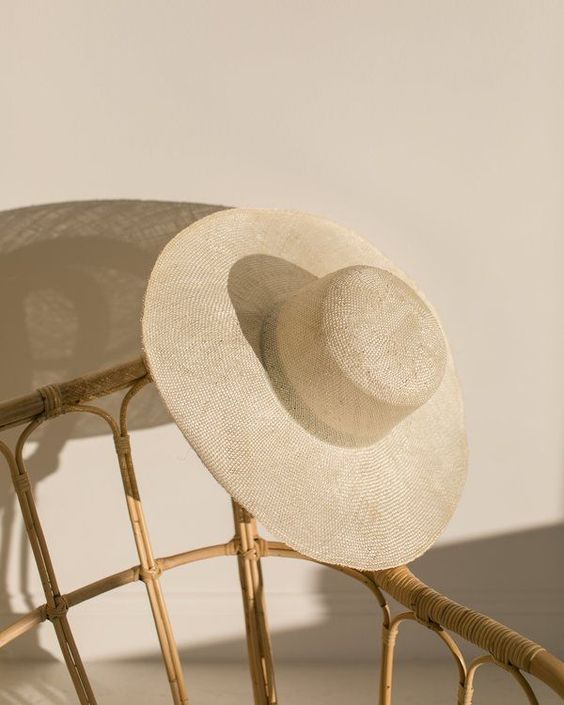“What’s for dinner?”
Such an innocent question. And yet, it’s the question that most often gets my partner’s head bitten off at 5 pm on any given weekday.
Because by this point in the day, I’ve already:
- Reviewed the calendar for any weekly appointments, due dates, or other unmissable time-based task for our household
- Gotten the kids fed, dressed, and occupied
- Cleaned the kitchen after breakfast, and after lunch
- Ran errands for things the house was in need of (and of course, figured out what was needed beforehand with a list)
- Bought and wrapped that birthday gift for this weekend
- Got the kids a snack
- Straightened the bedrooms
- Tackled my own work to-dos
- Laundry
- Got the kids more snacks
- Vacuumed
- Paid bills
- Probably got the kids more snacks
My partner’s day?
- Go to work
- Do work
- Eat at work
- Get home from work
By this time of the day, one more caretaking decision feels like just the thing to set me off.
And as I’m sure you can guess, yes – I’m the women in this relationship and my partner is a man.
Please don’t mistake me – I don’t intend to minimize his work. I know he works very hard and is dedicated to his job. I admire that about him. And I understand that his day is also full of decisions and stressors, and by no means easy.
But what can ALSO be true is this:
Our culture is (still) set up in the archaic model of a man’s main responsibility to be work, followed by well-earned downtime. Women, who were once responsible for all the homemaking and child-rearing, are today still responsible for most domestic tasks in addition to their own actual work as well.
Which functionally means, women just have less space in their days than men.
Less down time.
Less time for fun, or hobbies, or space to just be.
The name for this studied phenomenon? “The Leisure Gap”
And I’m not the only one noticing it.
According to a 2013 study by Pew Research, men get an average of five hours more leisure time than women per week – that’s 20 hours a month, or roughly 260 more hours per year. Nearly 11 whole days.
According to Cornell University, it is well documented that in the majority of U.S. families, women do more of the household chores compared to men, even when both spouses work full-time jobs. When factoring in that women working outside the home tend to work fewer hours compared to men working outside the home, women still take on a disproportionate share of household chores. Another found that despite historical shifts in who does what regarding household work, they estimated that women continue to do at least twice as much work in the home.
When it comes to child care, the figures are similar. A study by the Kaiser Family Foundation found that women are 10 times more likely than men to take time off to stay home with their sick children, and that mothers are also five times more likely to take their sick kids to doctors appointments.
And in yet another study, conducted at UCLA focusing on dual-income couples with children, Professor Darby Saxbe discovered the “everyday health toll” that more housework and less leisure time takes on women. “Partners who spent more of their time on housework had weaker evening recovery of their levels of cortisol, a stress hormone,” she explains.
I could go on. But the evidence, combined with the real, lived experiences of so many women struggling to “have it all” – the thriving career and the happy family and the active social life and the healthy body and the tidy home and the interesting personal hobbies and enough sleep – all point to the same struggle for so many women.
We simply don’t have the time to do it all.
What is Leisure, anyway?
When people hear the word leisure, they usually associate it with bonus time: the weekend, a holiday, or maybe when you finally use some of your meager PTO.
However, these are the breaks built into working life, and given only for the sake of work. “It is supposed to provide “new strength” for “new work” … one is refreshed for work through being refreshed from work,” explains philosopher Josef Pieper in his work, Leisure, the Basis of Culture.
True leisure isn’t just the opposite of work – it goes deeper. Pieper posits that it is truly “a condition of the soul.” It’s the space for what lights you up, makes you feel whole, or allows the space to just let life unfold without schedules and plans – “the power to be at leisure is the power to step beyond the working world and win contact with those superhuman, life-giving forces that can send us, renewed and alive again, into the busy world of work.”
Yet in our Protestant-ethic, work-obsessed culture (where any time spent not working is time wasted, lazy, unproductive), it feels radical to believe in the necessity of unplanned, non-work-related time.
Because the basic premise of our American ideals tell us:
→ It is necessary to work oneself to all day, every day, in pursuit of success.
→ The more you do, the more valuable you are.
→ Spending too much time on anything non-work-related should create guilt.
→ There is always more money to make, more clients to land, more content to create.
That your inability to “succeed” is because you didn’t work hard enough.
These values of glorified hard work and the evils of laziness are baked right into our shared value system.
We’ve come to see “leisure” as something not essential to the human spirit, but as a luxury only for the very privileged, those who have “earned” it. Or conversely, people who spends their days idle are slothful, less-than, undeserving of help or sympathy. After all, they don’t work hard enough, right?
And yet, most of the significant feats of human achievement – the spark for tech breakthroughs, the works of art, the innovation for inventions or creative solutions – most often come from moments of space of uninterrupted deep thinking. From leisure time.
How Can We Reclaim Leisure Time and Close the Leisure Gap?
Put simply, leisure is therefore fundamental to both our physical and mental health. This is the time that expands our capacity for creativity, offers our brains new and novel experiences, or simply recharges us with those pleasure hormones and reduces the stress ones.
It’s the space we create for truly living.
And so, like most things, the first step towards creating and protecting our leisure time is with awareness.
”Do you operate as though your time expands to fit everyone else’s needs? If so, you need to recognize that your time is precious and finite, and that while many men don’t even question whether they’re ‘allowed’ leisure time, you’ll likely need to re-train your brain to overcome some toxic messages that our culture sends us about women’s time and how it should be spent,” explains time management expert and author Eve Rodsky, in her book Find Your Unicorn Space: Reclaim Your Creative Life in a Too-Busy World.
After recognizing and reframing our personal relationship with our time, the next step would be then setting firmer boundaries with that time. It is key to put intentional guardrails around our space for leisure time – to place this time for yourself above the needs and wants of others.
“Guard your space and time,” Rodsky urges, “by clearly and respectfully communicating what you need and why you need it and by expressing appreciation, ahead of time, for having your boundary honored.”
That all said, it is important to point out that it is much harder for some people to access leisure time than others; people struggling to make ends meet, single parents, and often marginalized communities can feel unable to create space for leisure when their lives feel threatened by a lack of resources.
All of this points to the larger need to create stronger social safety nets and structures to lift up everyone in a community, for the holistic benefit of the community at large.
Aside from advocating for these changes, the very least we can do for these communities is to shift our own personal beliefs about work and leisure. The next time you think of someone as lazy or undeserving, reconsider what you really mean with those assumptions.
As social justice activist Mia Birdsong shared, “Turning away from work can feel like an indulgence, but in the context of capitalism, acts of joy are a form of rebellion and a deep affirmation of life, love, creativity, connectedness, and spirit.”
Yes, work can be important. It can even be vital to our lives. It can fill us with purpose, give back to those around us, or offer service and healing. It can just be a means to an end.
But making a living is not the same thing as having a life.
I’d love to know more about your experiences with the leisure gap.
Where have you noticed the leisure gap in your own life? How do you currently spend your free time? How does it make you feel, when you have leisure time?

Alix Bryan
Alix started with her. as a Virtual Assistant, and has transformed her role within the agency to take charge of all things content marketing. With years of experience in English education, email marketing, and self-taught design, she loves diving into all things related to wellness, writing and creative. When she’s not trying to keep up with her two little ones, Alix loves to dive headfirst into new cookbooks, play with fresh flowers, explore Pittsburgh with her husband, and buy more pretty journals and good pens than any one person needs in a lifetime.

View comments
+ Leave a comment